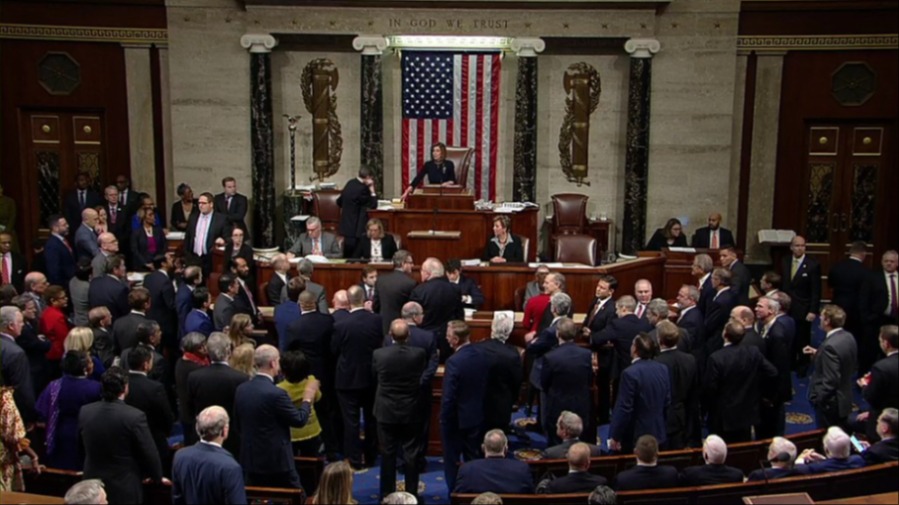The House Should Subpoena Witnesses Before Transmitting Impeachment Articles
The House should subpoena those witnesses whose testimony would speak to the president’s personal culpability in the withholding of appropriated military assistance to Ukraine.

Published by The Lawfare Institute
in Cooperation With

Speaker of the House Nancy Pelosi indicated on Jan. 9 that the bill of impeachment adopted by the House would be transmitted to the Senate "soon," though she did not specify a date. I hope she will reconsider.
Because it is now clear that the Senate will not take steps to ensure that it has all the relevant information before commencing its trial of impeachment, the House should subpoena those witnesses whose testimony would determine—either way—the president’s personal culpability in the withholding of appropriated military assistance to Ukraine. There is ample reason to believe that the former national security adviser, John Bolton, can provide first-hand information on this subject. Bolton should give testimony before any transmittal of the bill of impeachment to the Senate.
If he and others similarly situated—that is, persons with first-hand knowledge of the president’s actions and motivations, such as the president’s personal lawyer Rudy Giuliani, Acting White House Chief of Staff Mick Mulvaney and Secretary of State Mike Pompeo—refuse to honor subpoenas for their testimony, the House should immediately seek an injunction directing their testimony.
Until their testimony is heard—or until the Senate commits to seeking their testimony and compelling it if necessary—the bill of impeachment adopted by the House should not be transmitted to the Senate. Some constitutional scholars believed that transmittal should be deferred as a means of gaining leverage over the majority leader to make such a commitment. I was not one of them, but in any event, that strategy is moot now: McConnell appears to have held his caucus together and says he has the votes to begin a Senate trial without making concessions.
Whether or not there was ample evidence to support a bill of impeachment without this testimony, it is senseless to proceed to a trial without the best evidence.
The courts are the proper place to resolve a dispute over a refusal to honor a subpoena. That is the constitutional precedent set by the Nixon and Clinton impeachment inquiries. There is no reason why a resolution of this matter cannot be handled with dispatch by the judiciary. There is a unanimous Supreme Court case on point—United States v. Nixon—and procedures in place for expedited appeals.
I recognize that there are mounting political pressures on the speaker to simply move on, and I am sorely aware that the political calculations of her colleagues are made by officeholders with far better political judgment than I possess. Congressman Schiff, for example, has indicated wearily to CNN that he saw "little to be gained" by getting testimony by Bolton before the House Intelligence Committee. But I simply believe—and the speaker has indicated on several occasions that she shares this belief—that the best politics is to follow the Constitution. The impeachment clauses declare that the Senate proceedings are a trial, not a pure political event, and they should be treated as such with regard to the gathering of evidence.




